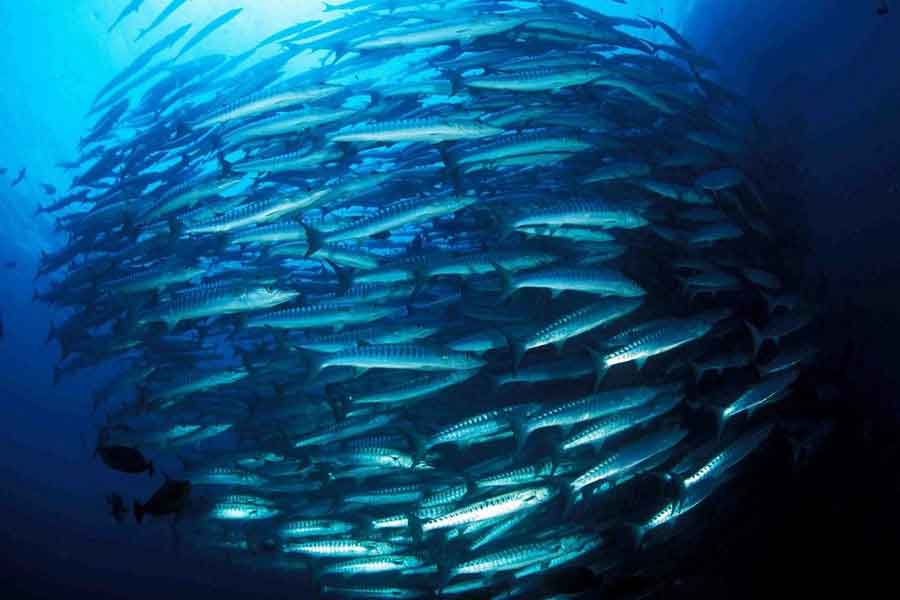
Humans often confuse an obese person with a strong person. We tend to believe that an overweight person is healthier than a thin person, and we frequently mistake thinness as an unavoidable symptom of illness. Even in ancient times, obesity was a clear synonym of opulence.
This belief leads us to assert that if we throw too much food to fish in an aquarium, they will consume it until they die from overeating. We are convinced that a wild animal with unlimited access to food will undoubtedly gorge itself.
However, in the animal kingdom, greed is a strange unknown. An animal that overeats will lose speed, reflexes, and reaction power, making it vulnerable to its own predators. Not even a shark, the ultimate apex predator of the marine food chain, can afford such luxury. If it did, it would be exposed to its own kind, who would turn it into an easy prey.
Among the most aggressive marine animals are barracudas. These fish, equipped with powerful teeth, are always on the lookout for prey. In their youth, barracudas move in schools, which allows them to cooperatively capture shoals of small fish. When the swift barracudas catch up to a defenseless group of fish, they proceed to surround them. The panicked fish gather to the point where they form a large ball of frightened flesh. This reduces their speed and movement, essentially leaving them at the mercy of the aggressive group. The barracudas simply have to eat since the table is set.
Young barracudas could eat without stopping throughout the day, but they don’t. They simply take one fish and move away, making room for other members of their species. Once they have all had their share, they stop eating but do not let the school of small victims escape. They keep them surrounded and frightened for several days, and each day, each barracuda feeds on one of them. Instead of overeating, they secure their food for a period of time. After all, obtaining prey is not an easy task in the current sea. Overeating, as we saw, would weaken them, but letting go of the food would be foolish. They simply maintain their living meat pantry, waiting for the moment when they need to consume new calories.
Humans, safe in our cities, have lost the concept of hunter and prey, and we don’t care much about weakening ourselves, gaining volume and weight, and becoming slower. Perhaps that is why alarming statistics show that 50% of the world’s population is overweight to some extent. But what may be happening is that we are not seeing the true predator, the man who preys on his fellow man and, in his eternal contradiction, attacks the very life he is trying to live.
«You cannot defend what you do not love, and you cannot love what you do not know.»

